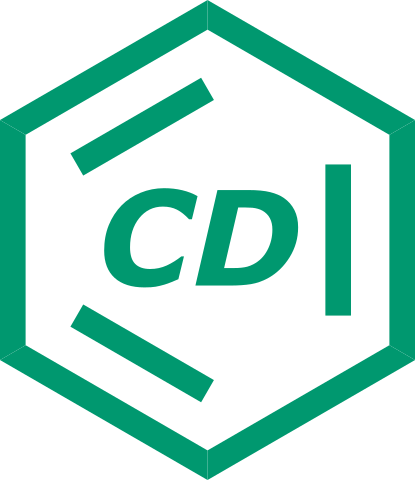Frequently Asked Questions
“All I know is that I know nothing” – Socrates1
Nevertheless, we do know a little bit about our own website. So, if you have any questions, this section also has some answers.

What is SciFailures?
SciFailures is the place for researchers to share any unpublished knowledge that might be of interest to other researchers.

What can I post?
You can post both successful and unsuccessful results: reactions, procedures, experimental setups…
If you are posting a procedure related to a publication, you can link it using its DOI.
Learn more about Digital Object Identifiers (DOI) and their role in research.

Will my contributions receive proper recognition?
Yes.
Every procedure you post will be linked to your SciFailures profile (and visible to the rest of the community if desired), ensuring your authorship is recognized.
ORCID integration verifies your identity and connects your contributions to your academic record.

How do I search for specific procedures?
You can use the search bar on the home page to look up reaction and substance names, CAS numbers, SMILES notation, tags, and even DOI names.
Additionally, our tool SF Search lets you search directly from ChemDraw.

How do I submit my procedures?
To submit a procedure, you just need to log in to SciFailures using your ORCID account. Once you’re logged in, you’ll see a (+) button in the bottom right corner.
There is also an available Word template to send to procedures@scifailures.com.

Can I post anonymously?
Yes.
When you submit a new procedure, you can choose to make it visible or not. You can also change this at any time.

What is SF Search?
SciFailures Search is a ChemDraw add-in that lets you search and post content in SciFailures directly from ChemDraw.
Explore

Why use ORCID?
ORCID is a unique digital ID for academics and professionals.
By using ORCID, we provide a simple and secure way to log in to SciFailures, ensuring each user is properly associated with their research.
Discover more about creating and managing your ORCID profile

Are procedures verified?
Yes.
Each submission is reviewed to ensure reliability. Once your procedure is approved, you’ll be notified, or we’ll contact you if further clarification is required.
F.A.Q.
Any more questions? We’ve got some more answers!
Usability and Collaboration
Can I connect with other researchers who have posted similar experiments?
Yes, users can both rate and comment on each procedure to share with the scientific community any updates they have, achievements, unsuccessful procedures, or support. They can also reply to specific messages and start threads.
How does this site encourage collaboration between scientists?
As researchers, we know that scientists are at the heart of science. That is why SciFailures is based on networking, sharing procedures and results to help other researchers plan more effective working strategies, and searching for procedures that have already been tried unsuccessfully.
If you find a new colleague, you can follow them to be notified when they publish a new procedure. You can also send them a private message.
Can I submit a procedure without using the web form?
Yes, there is a procedure template available for anyone who prefers this option to using the web form. Once you have filled it in, all you need to do is send it to procedures@scifailures.com.
Is there a way to track updates to procedures I’m interested in?
Yes, once you are logged in, you can customise your homepage to show the most recent procedures using your favourite keywords.
Is there a way to track updates to researchers I’m following?
Yes, once you are logged in, you can customise your homepage to show the latest procedures from the researchers you are following.
Does the site support multimedia (e.g., images, videos, spectral data) in procedures?
Yes, you can upload additional information when publishing a new procedure. Besides to be shown in the procedure, users can download that additional information.
Can I share procedures in languages other than English?
Currently, SciFailures supports procedures submitted in English to ensure accessibility for the global research community.
Contribution and Data Sharing
Who can publish on this website?
Any researcher with a DOI can register and publish procedures on SciFailures under their own responsibility. However, if you are not the principal investigator (PI) of a research group, please ensure you have the necessary consent to make the experimental information public (whether in a public or anonymous format). We strongly encourage collaboration and the sharing of knowledge, but we also want to ensure that this platform does not lead to conflicts or misunderstandings within your workplace or research group. It is important to respect internal protocols and obtain proper permissions before publishing sensitive or proprietary data.
Can I edit or remove a procedure after posting?
Yes, you can edit or remove a procedure at any time. Just send an email to procedures@scifailures.com with the procedure title or link and your changes. However, since procedures are reviewed before publishing, any edit will also be reviewed before updating.
Will my unpublished procedures receive proper attribution?
You need a SciFailures account to publish new procedures. Each account is linked to a verified ORCID profile, so every procedure you publish is related to you and will appear in your profile (unless you choose to make it anonymous; in this case, check the next question).
Will my anonymous procedures receive proper attribution?
When you choose to publish a procedure anonymously your name will not appear on it or on the search results. Nevertheless, it will be visible (only for you) in your profile.
You can change its visibility at any time.
Can I report someone misusing or plagiarizing my data?
Once you’ve submitted a new procedure, it’ll be reviewed before it’s published. We don’t just look for any errors or inconsistencies, but we also make sure that your procedure hasn’t already been published, and that we haven’t published anything else by mistake.
But if you think we’ve made a mistake and given the green light to a procedure you’ve already published, just drop us a line at support@scifailures.com. We’ll check it out right away and take care of it.
Privacy and Confidentiality
Is SciFailures getting any data from my ORCID profile?
Just your ORCID ID. SciFailures doesn’t pull any data from ORCID other than the ORCID iD. Users log in to the ORCID website, and SciFailures doesn’t have access to that login info.
SciFailures uses a protocol called OAuth 2.0 to communicate with ORCID. All we do is ask ORCID to verify that the user exists. After each login, we get a success/failure message. If the user is in the ORCID database, SciFailures gets the ORCID iD with the success message.
We don’t send or receive any information from ORCID. That’s why we ask you to fill in some details the first time you access your account, like your name and email.
How does the site ensure my unpublished data isn’t stolen or misused?
We review each submitted procedure before publishing and check carefully that it has not already been posted by another user, so your procedures are protected from re-posting.
SciFailures is mainly about making available and opening up to every scientist procedures, experiments and results that are usually not published as articles or patents. SciFailures is all the pages in your laboratory notebook you don’t include in the final article, but it can save a lot of time to other scientists and researchers.
Can I restrict access to my submissions to certain groups?
Right now, SciFailures’ procedures are public and open to everyone. You can choose to publish a procedure anonymously, but its content will be visible to the whole community.
It’s an interesting question, and we’ll look into including more restricted publishing options in the future.
Validation and Accuracy
Can users rate or comment on posted procedures?
Yes, users can both rate and comment on each procedure to share with the scientific community any updates they have, achievements, unsuccessful procedures, or support. They can also reply to specific messages and start threads.
Are there peer reviewers or moderators for submitted procedures?
At the moment, the review process for submitted procedures is managed by junior researchers. We carefully review each submission to ensure that it meets the platform’s standards for reliability and quality. Additionally, the SciFailures community plays an important role in the review process by providing feedback through comments. This collaborative input allows for further refinements or updates to the protocols. As the community grows, we aim to expand our review system to include more contributors, fostering a dynamic and ever-improving knowledge base.
What should I do if I find inaccurate or misleading data?
The rating and commenting system lets users share their experiences with other researchers. If you try a procedure and don’t get the same results as the user who published it, you can leave a comment or even send them a private message to share your experience.
However, if you think a procedure is intentionally wrong, you can send an email to support@scifailures.com.
Legal and Ethical Concerns
Who owns the data once it’s shared?
SciFailures does not own the information published here. The use of ORCID as a user validation tool allows each procedure to be linked to the person who published it.
SciFailures connects researchers and allows them to publish research that would otherwise be discarded. However, the information that users post is their own authorship and responsibility.
Is SciFailures compliant with research data-sharing ethics?
SciFailures is free to use and the information published in it is open to everyone. We do not sell or hide any data. Our motivation is to democratise scientific discovery and to value the work done as much as the work published.
What happens if I share data that overlaps with a patent application?
Read the question “Who owns the data once it’s shared?” in the Legal and Ethical Concerns section.
SciFailures connects researchers and allows them to publish research that would otherwise be discarded. However, the information that users publish is their own authorship and responsibility.
Technical Support
How do I create an account?
On the homepage, just below the search bar, there is text that encourages you to create an account. It is really easy, once you click on the text you just need to log in to your ORCID account on the official ORCID site.
SciFailures has no access to any ORCID data other than your ORCID iD to validate that you have an account. Read the question “Does SciFailures get any data from my ORCID profile” in the Legal and Ethical Concerns section.
What should I do if I experience a technical issue?
If you are experiencing a technical problem, you can send an email describing the problem to support@scifailures.com.
We will read your issue and contact you as soon as possible to resolve it.
Is there a tutorial for new users?
SciFailures is designed to be simple an intuitive. However, there are available some brief tutorials about the different functionalities of the platform in the About page.
Is there a live chat or helpdesk for immediate assistance?
Currently, SciFailures does not offer live chat for immediate assistance. However, you can reach our support team by emailing support@scifailures.com, and we will respond as quickly as possible to assist you with any questions or issues.
Miscellaneous
Can I suggest improvements or new features for the platform?
Suggestions for improvements and new features you want or miss are always welcome! If you have any you would like to share with us, please send them to support@scifailures.com.
Are there any subscription fees or paid features?
SciFailures is a free site with no subscriptions or paid features. Everything is free and available. Great, right? ![]()
How can I cite this platform in my publications?
If you want to cite a procedure in a scientific publication, you can simply click on the “Cite this procedure” button that appears at the top of each procedure.
However, if you want to cite a procedure manually, you only need to do so as an URL. We encourage you to include the author of the procedure to make their work visible.
Is there a newsletter to stay updated on SciFailures announcements?
SciFailures doesn’t have a traditional newsletter, but you can stay informed by saving specific keywords or researcher profiles. You’ll receive email notifications whenever there are new posts or updates related to your saved items.
Are there annual reports or metrics on the platform’s impact in the scientific community?
Currently, SciFailures does not produce annual reports or detailed metrics on platform impact. However, as a growing community, we recognize the value of tracking participation and engagement to better serve the scientific community. This is something we may explore in the future as the platform evolves.